When the Hungarian reader's eyes come across the name Nathan Barr a question arises: Who is this guy in his 30s? What are his works? The reason behind the relative anonymity of this composer is that he wasn't assigned to any blockbuster during his 8 year career. We made interview in connection with the score of The Dukes of Hazzard country which recently arrived in the American cinemas.
Our first question relates to the movie The Dukes of Hazzard which will arrive to the cinemas soon. When and how did the filmmakers find you in connection with this movie?
I first worked with the director Jay Chandrasekhar on Club Dread which we did over at Fox Searchlight. We had a great experience and so it seemed natural to continue working together. Our very first meeting (on Club Dread) was set up by my most excellent agent, Rich Jacobellis.
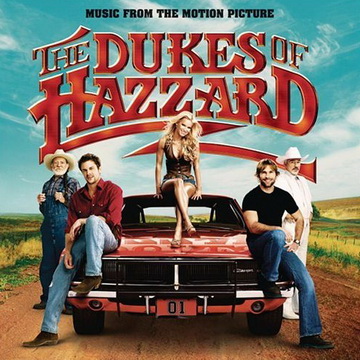 The Dukes of Hazzard was one of the trademark series of the 80s. Do you like it?
The Dukes of Hazzard was one of the trademark series of the 80s. Do you like it?I grew up watching the series so yes I do like the original show - I can't say I was a die-hard fan, but I certainly knew the cast of characters by name and perhaps a couple of episodes by plot.
How free your hands are when composing the music? Did the filmmakers intervene in your work?
Jay really likes to let me run with my ideas before getting too involved. Our experience on Club Dread gave me some insight into what Jay's musical likes and dislikes were – for example, he really dislikes using music in an overtly comedic way, so I knew to steer clear of that from the beginning. When working with Jay I will often present him with a couple of different options from which to choose, and this gives me a good idea of what direction he hears the score taking.
The records happened on 13th and 19th June. How was the mood in the studio? Was the schedule stressed?
The recording sessions were so much fun - and completely hilarious. We were definitely under pressure because the final dub had already started as we began recording, but everyone had a great sense of humor so things never got too tense. The band was phenomenol and included Justin Meldal-Johnson on bass, Roger Manning on keyboards, Bernie Locker on guitar, and Greg Ellis and Butch Norton on drums.
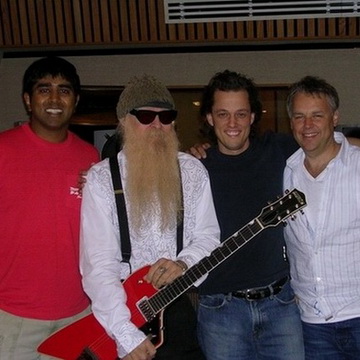 Billy Gibbons, the legendary guitarist of ZZ Top, participated in the records. Who recommended, invited him to the project? Did he have any ideas, suggestions which were later implemented in the music, or he just played the given tunes?
Billy Gibbons, the legendary guitarist of ZZ Top, participated in the records. Who recommended, invited him to the project? Did he have any ideas, suggestions which were later implemented in the music, or he just played the given tunes? Billy Gibbons was one of several guitarists Jay and I had discussed as a possible guitar player to feature on the score. There were several other amazing players we considered, but at the end of the day, Billy Gibbons was much too perfect a fit to pass up. My day with Billy Gibbons in the studio was definitely one of the most memorable days of my musical life. I think Billy wasn't sure what to expect from me, and I wasn't sure what to expect from Billy (afterall some rock stars do have that "rock star attitude") but we had the most amazing collaboration together. Billy was one of the most gracious, generous, and professional individuals I have ever met – a true Texan gentleman. By the time Billy came in, the band had been recorded, so Billy was the icing on the cake. I wrote "Boss Hogg's Theme" with my Baritone guitar, but my performance just didin't have the attitude that it needed, so Billy doubled it and gave it what he called some of that "bearded-boy attitude!".
What was procedure of the records? How much time do the afterworks of the recorded music take?
The mixing process took about six days once we had finished the actual recording of the musicians. We probably could have used more time, but our budget was tight and only allowed for the six days. Engineer / co-producer Peter Cobbin worked his magic and really blessed the score with an amazing sound which helped to distinguish it from all of the rock n roll songs in the film.
What is the proportion of the scores and the songs? Have the makers and the musical directors already decided the place of latter ones on the album or have they consulted with you?
As I answer these questions, the film is in the process of the final dub, so it is hard to say exactly what the proportion between song and score will end up looking like since things can always change at the last minute. But if I had to guess, there will be between 30-40 minutes of score, and about that much more of songs. So roughly half and half? Maybe?
The only available album in the stores does not contain any of your score. Will the release of the score be possible in the future?
I am in talks right now with several record labels that are interested in releasing a score album for Dukes – so I certainly hope that it will be released, but it's a bit early to say for sure.
Being an author of instrumental soundtracks what is your opinion about songs? do you like them or they are essential only for better selling?
I think that songs and score can both enhance a film in very different ways. Certainly from a business standpoint a studio will often utilize songs in order to create a saleable soundtrack, but if they are well placed, they can help a film just a much as score can. It's hard to imagine Breakfast at Tiffany's without "Moonriver", James Bond without the title songs, Butch Cassidy and the Sundance Kid without "Raindrops Keep Falling on My Head". These are examples of songs that worked so well that it is impossible to hear them and not think of the film – furthermore they are all great songs that continue to have a life of their own.
Your first work was short movie Travelling Companion back in 1998. How do you remember about it?
Traveling Companion was my very first film – it was a short film that I landed while still an assistant for Hans Zimmer. It was very exciting because Hans let me do the score in his studio. It is also what led me to hook up with my agent Rich Jacobellis. His then girlfriend, now wife, was one of Hans' assistants and unbeknownst to me she slipped him a copy of my demo. He was as assistant at the time to Richard Kraft, but was looking for his own composers to begin shopping around town. We've worked together ever since!.
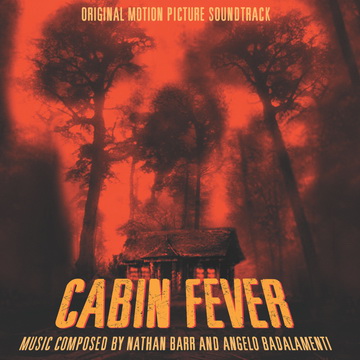 The music of Cabin Fever – it's score was later released – is heavily dependant on the movie. When composing how much emphasis do you put on the later popularity and the easier understanding of the soundtrack?
The music of Cabin Fever – it's score was later released – is heavily dependant on the movie. When composing how much emphasis do you put on the later popularity and the easier understanding of the soundtrack?It's always nice to have a soundtrack of one's score, but there are times when music for a particular film may not stand on it's own without picture. Cabin Fever was as you said very tied to picture, and the nature of the score that I created was largely atmospheric because Eli and I felt this is how music could best serve the picture. If I were to put the possibility of creating an interesting soundtrack before what is best for the picture, I would not be doing my job.
In this score Angelo Badalamenti appears in some tracks. His style differs from your previous works. How was he involved in the work? Did you meet or you just did your own part of the job?
I am a great admirer of Angelo Badalamenti's work and was honored to share a credit with him, but we never did meet. Eli Roth's carreer began with David Lynch and so he had a friendship with Angelo and thus invited Angelo to write a couple of themes for the film. Angelo was on his way to Cannes at the time and only had a very short time in which he could contribute to the film, so he wrote a bunch of stuff, shipped it off to us, and Eli used some of it to great effect. I arranged one or two of his themes in a couple of cues, but largely worked with my own material. I hope to meet him one day!
I read in your biography that in 1996 you had met Hans Zimmer and you worked as an assisstant next to him. The start of your soundtrack career dates back to this year as well. Was it good to work with him? How did the cooperation affect your future and influence your style?
I had always paid attention to music in films from a very early age and found it all very exciting – Max Steiner's score to Gone With the Wind, Anton Karas' score to The Third Man, Maurice Jarre's score to Lawrance of Arabia, John Williams' score to Star Wars – the list goes on and on and on. Initially when I arrived to Los Angeles I was working on the film production side of things and wanted a break from music after four years of fairly intense cello study at college. About a year after arriving, a friend of mine pointed out an advert for 'assistant to film composer' and so I applied and it turned out to be Hans and we hit it off and I was hired. The funny part of the experience was that I knew next to nothing about technology (I think I thought MIDI stood for 'musically inclined' something or other!) But thanks to Hans' other assistants who gratiously covered my ass, I made it through my brief tenure there and had an incredible learning experience. I asked Hans to include me in all meetings which he very generously did and so I got a very complete look at the life of a film composer. Stylistically I don't hear a lot of Hans' influence in my own work, but he was certainly a great inspiration for me while I worked with him and for that I will be forever grateful.
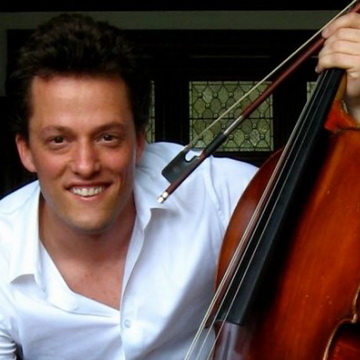 Which softwares do you use for composing and mixing?
Which softwares do you use for composing and mixing?For The Dukes of Hazzard I used ProTools exclusively because there was never any need for midi – I did all the mock ups myself with a little help from drummer Greg Ellis here and there. We also used ProTools when recording the final tracks. For scores that require a great deal of mocking up I use Logic whose midi and audio capabilities are in my opinion the most functional.
There were codes like 1M2, 3M5, 8M12 next to the title and the instrument in the header of the scores during the record. What do they stand for?
These curious looking number and letter combinations are standards in the film music industry - The first number represents the reel number. The M simply stands for music, and the last number indicates the cues numerical position in the film. Thus 3m26 would translate as the 26th piece of music in the film, and it falls in reel 3.
Do you have standard persons you always work with at the recordings?
I always use Brian Richards as my music editor – we have probably done about 15 films together and we are also good friends. I have several recording engineers/mixers who I enjoy working with. I have worked on several films with Mike Farrow who is a fabulous scoring mixer and engineer who is best know for his work with Carter Burwell on the Coen Brothers films. I also love working with Peter Cobbin who is the head engineer at Abbey Road and who joined me here to mix The Dukes of Hazzard.
How tough the life is for a young composer? What does the success depend on: talent, money, diligence or good contacts?
Life for a film composer starting out is very difficult. You have to be patient, trusting, humble, resourceful, determined, have a certain amount of luck, and be incredibly prepared for anything. You also have to be good with people and learn to leave your ego at the door. And always believe that you can write something better than what you just wrote. It is a very difficult road, but I stick with it because movies and music are the two greatest loves of my life (after my wife and dog of course!).
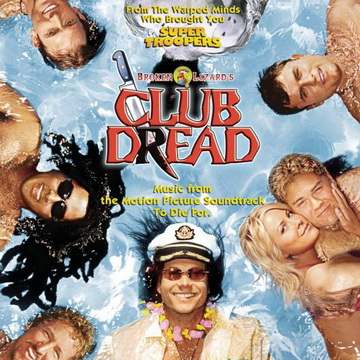 As you wrote us, the world of the movies and the music are the greatest joys in your life after your wife and your dog. Your wife is Lisbeth Scott, a well-known singer, especially after the Passion of the Christ. Have you ever though about a joint project with her? If yes, what kind of project would you like to work with each other?
As you wrote us, the world of the movies and the music are the greatest joys in your life after your wife and your dog. Your wife is Lisbeth Scott, a well-known singer, especially after the Passion of the Christ. Have you ever though about a joint project with her? If yes, what kind of project would you like to work with each other?Lisbeth and I have worked on projects together before – she did quite a bit of vocal work on the songs I arranged and co-wrote with Paul Soter and Kevin Heffernan of Broken Lizard for Club Dread. Bill Paxton performed the lead vocals on these tracks as characer Coconut Pete. She also did some beautiful and haunting atmospheric vocal work on the score itself. I produced several tracks on her latest album, Passionate Voice, and also performed a number of instruments too. I think our dream project would be an entire album together, where we co-write all of the material and sing/perform toether.
What is your opinion of the present and the future of the film musics?
I think there are some very exciting film composers around and I am happy to be a part of the new generation of film composers. We've lost some of film music's giants over the past couple of years – Jerry Goldsmith, Elmer Bernstein and Michael Kamen to name a few. The new wave of film composers is more tech savvy than the previous generations because they have to be, and there doesn't seem to be as much of an emphasis on a traditional classical music education. This is good and bad. To my ears, some of the musical sophistication we all witnessed with the last generation of film composers is absent in today's younger composers. BUT, and this is a big "BUT," the new generation of composers is pushing technology to it's absolute limits and this can be quite exciting too – just rather different from what we've experienced in the past. This is all a way of saying that I am definitely hearing a lot of very mediocre work in conjunction with a lot of mediocre film, but I am also hearing some very exciting work in conjunction with some of the better films. Take Thomas Newman for example who has redefined the way we think about themes in film music. He doesn't write traditional themes, but instead relies on motifs and textures a lot of the time in his approach to films – and always to great effect!.
In terms of actual score soundtrack sales and their future, it is a niche market that I believe will always be around. Occasionally a film is so huge and it's score so moving that it generates enormous sales – John Debney's Passion of the Christ for example.
Do you have any news about your next project?
I am scoring Eli Roth's next film entitled Hostel which will be released by Sony Screen Gems in September. I just saw a cut of it the other day and think it's fantastic. He shot it on location in Prague and we will be going to Prague to record the score with a seventy piece orchestra sometime in late August or early September. This highlights one of the reasons I love scoring films – I get to go from a hard rock score in The Dukes of Hazzard to an orchestral score with Hostel – back to back. It makes life so very interesting!
What do you do in your free time?
In my free time I see lots of movies, travel, read, and wonder what my next project is going to be.
To know more about Nathan Barr's work, please visit the composer's official website.
Photographs from: Nathan Barr, Tom Kidd
Special thanks to Tom Kidd
August 14th, 2005
Special thanks to Tom Kidd
August 14th, 2005








